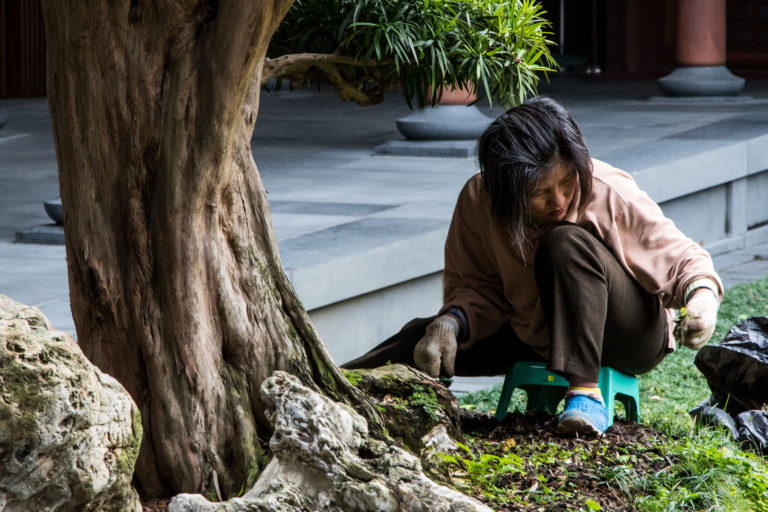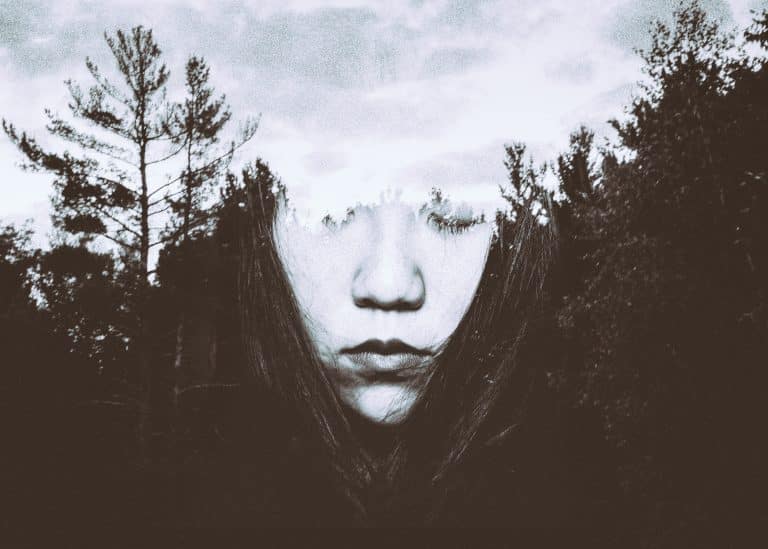
Image by Florian Rohart/Flickr (CC BY-NC-ND 2.0)..
The Landmark of Aging with Grace
The wildfire popularity of Atul Gawande’s important book, Being Mortal: Medicine and What Matters in the End, illustrates how we as a culture are evolving in our relationship with death. As baby boomers are steadily aging and simultaneously caring for parents who are dying, we are left with little choice but to remove our heads from clouds of denial and simply deal with death.
Decades of all manner of creative escapism — from cosmetic surgery to cryonics — have done little to nothing to ease our palpable fear of death. Many factors have contributed to our rising, collective dread, not the least of which is medicine’s capacity to keep us fighting the good fight. In this arena, no one pauses, neither doctors nor patients, to take a step back and ask, “What am I afraid of? What am I clinging to? What’s the source of my suffering? How can I ease it?”
When confronted with a serious illness, fearing death seems fairly obvious. But, while our sights are set on winning the battle and finding a cure, we consistently sidestep a deeper undercurrent of feelings and fears. Hope is a crucial tool in our well-being arsenal, as Dr. Jerome Groopman illustrated in his seminal book, The Anatomy of Hope.
But at what point does hope devolve into denial, robbing us of all that is available in the present as we frantically grasp for a future that is ultimately out of our reach? Because we can’t imagine a future without us in it, because our egos will not let us even remotely entertain such an outcome, we stay in the ring and fight on. Can it really be said we are making a fully conscious choice or one habitually conditioned by fear?
Throughout his book, Atul Gawande drives home the message that the elderly are often denied the opportunity to maintain control over their lives in accordance with their values and lifestyle preferences. Our culture’s overriding desire to keep our seniors safe and free from harm often disconnects individuals from their own sense of integrity and the ability to live out their lives with purpose and meaning.
“This is what it means to have autonomy — you may not control life’s circumstances, but getting to be the author of your life means getting to control what you do with them.”
And there’s the proverbial rub. On the face of things, it may seem as if we have control over our responses to events. Most of us act in habituated ways, stemming from perceptions that have been conditioned over a lifetime. So where’s the freedom in that?
Quietly, in steps the Buddha… with his list pad. Anyone familiar with his teachings appreciates Buddha’s penchant for lists. Over time and with deeper understanding, these numerical items and categories eventually form a holistic and highly practical paradigm for a peaceful life. But with regard to Atul Gawande’s thesis, that autonomy is synonymous with acceptance in life’s final chapter; perhaps Buddha would draw our attention to a particular hindrance that is the primary barrier to contentment, whatever stage of life we’re living: grasping for what is pleasant and pushing away what is unpleasant.
For example, most seniors want to remain in their own homes. Inevitably, circumstances will arise that may encroach upon this desire. Grasping for independence and a lifestyle around which they have woven their identity, they push away what is perceived as unwelcome interference from well-meaning family, friends, and professionals. Conflict arises and suffering ensues. On the surface, this may seem like an issue of exerting control and autonomy. Delving deeper, as the Buddha would encourage, we discover another primary cause for suffering in all age groups: the truth of impermanence.
We change and life changes around us all the time. Atul Gawande suggests that happiness lies in our ability to control what we do with these inevitable changes. Is he referring to an unassailable inner equanimity irrespective of outer circumstances? Or is he suggesting that the individual continue to exert control over his conditions until they are in alignment with his values and preferences?
Mark Nepo, in his book The Endless Practice, has this take on the need to control:
“Alchemists in the Middle Ages were intent on discovering the philosopher’s stone, a legendary substance that could turn iron into gold. Their efforts mirror the timeless attempt of humans to control life rather than face it, by turning what we don’t like into something else…When we resist both things — as-they-are and how we feel about what-is, we pour our efforts into turning things into gold, a misrepresentation that can occupy our energy and worth for years. When we can face what we’re given and feel our feelings all the way through, we find the value — the gold — in everything and in ourselves.”
This pathway of approaching change, and the myriad losses that accompany old age and dying, seem to offer a more reliable and stable access to true equanimity: the landmark of aging with grace. For those dealing with a life-threatening illness, the time invested in battling the odds and going for “the gold” may rob them of a treasure trove of present moments, lying right at their feet.
Experience has shown me that I cannot depend on outer conditions to generate happiness. Yes, when my values and preferences happen to line up with how life is showing up in any given moment, it is delightful. But to hitch my happiness to this expectation can only bring disillusionment, especially if I am old and frail with no other inner resources to see me through.
In his epilogue, Atul Gawande summarizes the vital questions to ask ourselves when faced with serious sickness:
“What is your understanding of the situation and its potential outcomes? What are the trade-offs you are willing to make and not willing to make? And what is the course of action that best serves this understanding?”
Although this type of inquiry can be a useful assessment tool and is certainly better than avoiding the elephant in the room altogether, it is not going to guarantee that events will unfold in accordance with our wishes. It’s impossible to predict what the trade-offs will cost us. Nor can we accurately predict how any course of action will match up with our expectations and hopes. If we are to be clearly honest, when dying comes into the picture, there’s simply no firm ground to stand on. It’s that way with life too, but much easier to pretend otherwise.


Share your reflection